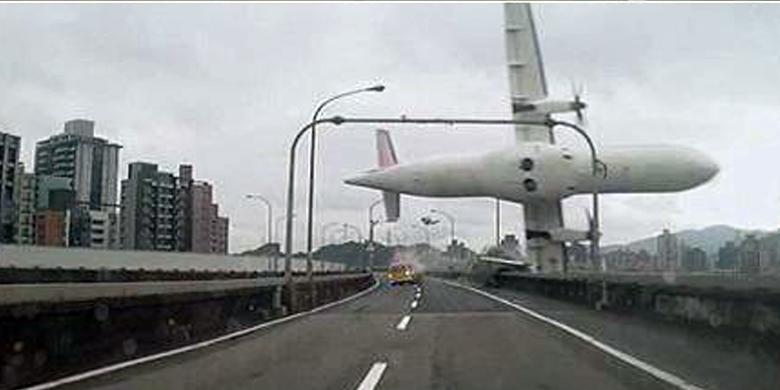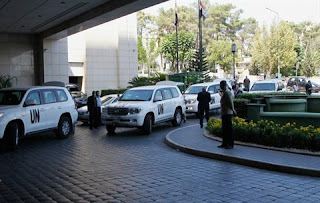DAMASCUS: It might sound absurd to talk about normal life in Syria after two years of civil war which have killed more than 70,000 people and left five million more destitute and homeless.
Yet in the neighbourhood of Malki, a tree-lined enclave of central Damascus, a wealthy group of elite, pro-government Syrians still enjoy shopping for imported French cheeses, gourmet hand-made chocolates and iPad minis in the well-stocked, recently built Grand Mall and in nearby boutiques.
Such are the parallel realities of a conflict in which, for all the gains made by rebels and the current chatter about U.S. "red lines" crossed that might ultimately draw in Western might, President Bashar al-Assad is holding his ground in the capital, bulwarked by his own foreign allies and by many Syrians who fear his end could prove fatal for them too. And so life goes on.
In Malki, sprinklers water the manicured lawns outside their blocks of million-dollar apartments. Maids and drivers cater to their every whim and birds sing in the trees. Fuel for their BMWs and electricity for their air-conditioning is plentiful and the well-guarded streets are free of loiterers.
"Look at this display and you feel all is well, life is good and everything is here," said an elegantly dressed Hiyam Jabri, 50, as she placed her order at the delicatessen counter in the mall's main supermarket.
Malki residents continue to enjoy material comforts and abundant supplies of imported goods, even as millions of their compatriots subsist on food handouts.
The United Nations World Food Programme estimates it is feeding 2.5 million people inside Syria - a tenth of the population - and a further million who have fled the country, offering them subsistence rations of flour and rice.
"We are trying to keep up with the enormity of the crisis and the impact of the brutality," the WFP's deputy regional emergency coordinator Matthew Hollingworth said in the capital.
Most of those whom his staff help "haven't been displaced once but sometimes twice, three times". Food is so scarce for those uprooted by the fighting that rations intended to feed a family of five are being shared by three families.
ILLUSIONS
Even in Malki, though, the air of normality is an illusion - as unreal as the oft-repeated assertions of government officials that victory is near and Assad still controls almost all Syria.
Scratch the surface of the illusion and the normality quickly becomes anything but.
Pasted to the lamp-post outside the elegant chocolatier Ghraoui, whose interior boasts award certificates from France, is a wad of black and white fliers. They are printed by families and they mourn sons and husbands killed in the war.
It is a war, however, that seems to be going nowhere fast.
Recent days have shown again the reluctance of the United States and its allies, in the face of evidence Assad's troops may have crossed President Barack Obama's "red line" by using chemical weapons, to intervene militarily against him - not least as some rebels have espoused the cause of al Qaeda.
Among the few independent outsiders seeing at first hand the mosaic of opinion and suffering in Syria, many aid workers lament that international discourse has become a monotone debate on supplying weapons, with little push for a negotiated peace.
"We need a political solution for this conflict," said Marc Lucet, the local emergency coordinator for UNICEF, whose fellow humanitarian workers recount grim tales of hungry refugees found cowering in half-built apartment blocks or idle factories.
The surface serenity of Malki contrasts with what aid groups say is a country splintered by ever shifting frontlines and a fragmenting opposition; many fear violence will spread beyond Syria's borders and are baffled by the debate in the West over how far to arm rebels, saying this will only make matters worse.
Stressing the need for a political settlement, however, unpalatable and, so far, unattainable, UNICEF's Lucet said: "The solution is certainly not to give more weapons to either side."
Attempts to bring Assad down by diplomatic means have failed to break the impasse, even if they do make life less comfortable in Malki.
Inside the Ghraoui chocolate boutique, as everywhere else in Syria, sales are strictly cash only - sanctions have forced international credit card networks to boycott transactions here.
Prices on restaurant menus in local currency, the Syrian pound, have been hastily updated with stickers multiple times - a tell-tale sign of rapid inflation.
At the luxury mall supermarket, Eyad al-Burghol says he is selling fewer imported foodstuffs than before because many wealthy customers have left the country.
FIGHTING TALK
A distant thump of artillery fire serves as a reminder that, just a few kilometres (miles) away, fierce street-to-street battles are being fought between government and rebel forces. Some days, Russian-made MiG fighter jets streak across the sky on their way to bomb insurgent positions.
The abundant security in Malki, residents say, is provided by men who speak the Iranian tongue of Farsi, rather than Syrian Arabic. Tehran has long been Assad's sponsor against his fellow Arab leaders and the word on the street - impossible to verify - is that this heavily guarded area of town may be home to the Syrian president himself and to his immediate family.
Assad is not seen in public these days and officials refuse to comment on his movements or whereabouts.
Senior Syrian officials try hard to show visiting reporters a picture of normality in which the government is firmly in control. But even the cocoon in which they live and work is starting to be punctured by the facts of war.
Syria's central bank governor Adeeb Mayaleh gave Reuters an interview last week at a headquarters building bearing the scars of a car bomb attack earlier in the month. Blinds hung twisted and useless in front of warped window-frames without glass. A palm tree outside had been reduced to a charred skeleton.
The bank chief insisted that the government had plenty of foreign currency available to guarantee imports and enough cash to pay public employees' wages in advance each month. For how long? Iran and Russia, he said, were about to agree fresh funds.
Deputy Foreign Minister Faisal Mekdad gave an upbeat assessment of the war in an interview - but a Syrian who works nearby told us that the complex housing the ministry had been attacked four times by rebels in the past few months.
UNICEF regional coordinator Youssef Abdul-Jalil estimated that at least three million children inside Syria now needed humanitarian assistance because of the war: "There is a crisis of the children of Syria," he said. "They are paying a terrible price in their lives, in their surroundings, in their health, in their education and in their lack of protection".
REALITY INTRUDES
Cars still choke central Damascus and traffic police still issue tickets for speeding and even clamp badly parked vehicles. But armed checkpoints snarl progress to a snail's pace.
Travel agents still offer flights and holidays. But the road to the city's airport is considered too dangerous by many and flights are available only to a few, friendly, destinations.
Telephones still work and officials still show up for work in neatly ironed shirts and well-pressed suits - but many scuttle off early to be home before nightfall.
One resident spoke of a distant relative, a Christian from a prosperous family of car dealers, who was kidnapped.
Accused of supporting Assad, he was beaten while hanging upside down. His captors then they injected fuel into his veins. Released for a ransom worth over $20,000, the man died a few days later.
While the Syrian elite continue to insist that the military campaign against the rebels is succeeding, aid workers in Aleppo say that the area of the country's biggest city that is now controlled by the government is very small.
The main north-south highway which connects Aleppo to Damascus via the major cities of Homs and Hama now features some 38 checkpoints, about nine of which are manned by various groups of rebels, NGO workers who have travelled along it recently say.
In the capital, the government says it guarantees a "Square of Security" in the centre; some locals joke that rebel gains have shorn it to a rather smaller "Security Triangle".
Damascus's walled Old City, a UNESCO World Heritage site and home to the 7th-century Umayyad mosque, retains its beauty. But these days it is eerily empty. Tourists have long gone and the souvenir sellers have all but given up hope of selling anything.
Inside the mosque's main prayer hall, featuring a shrine said to contain the head of St. John the Baptist, mournful guides tell of how the imam was recently murdered.
At a jewellery shop in the al-Hamidiyeh bazaar, Anas Hallawi, 25, sat looking bored: "People are selling their gold not buying these days," he said. "Our business thrived on foreign tourists and Syrians buying gold for their brides.
"Now the tourists are gone. And nobody is getting married."
At the Al-Naranj restaurant in the Christian Quarter, one of Damascus's finest eateries, diners discussed the relative risks of car bombings versus random mortar attacks and kidnap. Little wonder that so many with the means have left for Lebanon, as life in the capital becomes a kind of ghoulish Russian roulette.
Across the room, a smartly dressed family group celebrated a betrothal with a lavish spread of traditional Syrian food on a table decorated with red roses.
As the strains of the old songs died away and a festive cake was eaten, a fighter jet roared across the sky. Artillery fire thudded in the distance. The family looked upwards through the restaurant's glass roof, eyes suddenly fearful.
Read more






















